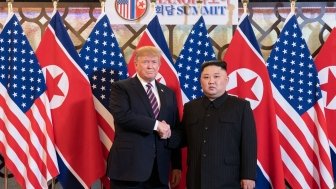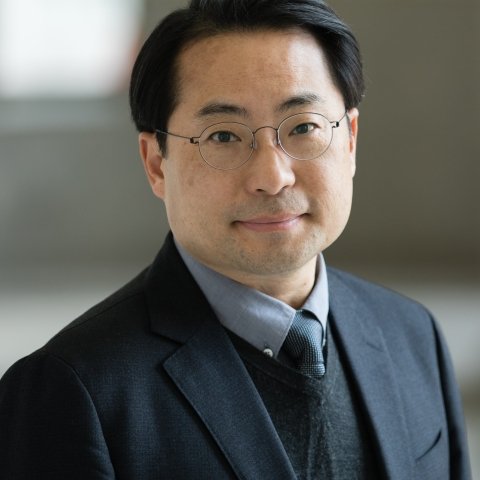Jungkun Seo
Fulbright Fellow (Mid-Career Research Scholar)
Professional Affiliation
Associate Professor of Political Science, Kyung Hee University, Seoul, Korea
Expert Bio
Jungkun Seo is an Associate Professor in the Department of Political Science at Kyung Hee University, Seoul, Korea. Dr. Seo is teaching American Politics, U.S. Foreign Policy, and Party Politics. Prior to joining Kyung Hee University, he was an Assistant Professor (tenure-track) in the Department of Public and International Affairs at the University of North Carolina, Wilmington (2007– 2012) and received the teaching awards from both KHU (2015) and UNCW (2009, 2010).
Professor Seo’s research interests include American politics of foreign policymaking, comparative legislative politic and US policy toward East Asia (China, North/South Korea). His co-authored book titled American Politics and US Asia Policy (in Korean) published in 2017 was selected one of the year’s best books by the National Academy of Sciences in Korea. Another co-authored article (with Dr. Peter Trubowitz of London School of Economics) received the Best Paper Award from the Foreign Policy Section of the American Political Science Association (2010). He also published numerous articles for peer-reviewed journals such as Political Science Quarterly, American Politics Research, Party Politics, Journal of American Studies, Journal of Legislative Studies, Government and Opposition, International Relations of the Asia–Pacific, Asian Perspective, Korean Political Science Review, Korean Party Studies Review, and Korean Journal of Defense Analysis.
Dr. Seo often appears as an analyst of US foreign policy for the media in South Korea (Joongang Iibo, Hankook Ilbo, KBS, MBC, Arirang TV, and JTBC). He also served as a commissioner of the National Election Broadcasting Debates Commission, a commentator for KBS, and a congressional intern on US Capitol Hill. Jungkun Seo received a Ph.D. and an M.A. in Government from the University of Texas at Austin and a B.A. in Political Science from Seoul National University.
Wilson Center Project
“US-East Relations and American Politics and Comparative Legislative and Party Politics: The Cases of the Korean National Assembly and the US Congress”
Project Summary
Over the course of American political history, Democratic Presidents’ foreign policy achievements have often met with Republican Congress’s domestic political abandonments. There are numerous examples, from Wilson’s Versailles Treaty in 1919 to Clinton’s CTBT in 1999. When it comes to the question of North Korea, Democratic Presidents have also often had to experience the collapse of diplomatic efforts on their watch. Now, for the first time in American memory, it is the Republican President who is trying to negotiate with one of the world’s last hard line communist regimes for complete denuclearization. With Republican hawks unable to criticize their own president and the “anti-Trump” Democrats long supportive of engagement, President Trump faces a unique domestic political situation. Just like in 1972 when Nixon visited China, domestic politics matter for a sitting U.S. president meeting face-to-face with a long-time adversary. My research project analyzes the sources and processes of the Trump administration’s North Korea policy from the perspective of “politics starting, not stopping, at the water’s edge.” Particularly with the 2020 presidential election campaign quickly approaching, I plan to incorporate into the account the intra-party politics of Democratic contenders, the Republican Senate’s response to Trump, and the polarized status of U.S. media coverage on foreign policy. This project will shed light on how American politics in the post-Iraq War era respond to the classical crisis of nuclear threats in the context of domestic politicians only playing to their base.
Major Publications
2018. “Legislative Response to Constituents’ Interests in New Democracies: The 18th National Assembly and Income Inequality in Korea,” (with Hansoo Lee and Hee Min) Government and Opposition 53(2): 312-334 (Cambridge University Press)
2018. “Trump by Nixon: Maverick Presidents in the Years of U.S. Relative Decline,” (with Taesuh Cha) Korean Journal of Defense Analysis 30(1):79-96
2017. “The Trump Presidency, US Congress and the Changing Korea-US Free Trade Agreement,” (with Minjin Choi) Korean Party Studies Review 16(3): 175-205 (in Korean)
2017. “Analyzing Economic Sanctions of the United States,” (with Taehee Whang and A Young Chun) Korean Political Science Review 51(4) (in Korean)
2017. American Politics and US Asia Policy (with Sung-jin Yoo and Jaemook Lee) (Seoul: Kyung Hee University Press) (in Korean)
2017. “Strange Bedfellows and US China Policy in the Era of Polarized Politics,” Korean Journal of Defense Analysis 29(1):47-69
2016. “American Trade Policy and the 2016 US Elections,” (with Hyeyoung Chang) Journal of American Studies 48(3):133-159 (in Korean)
2016. “Independent Voters in Political Contexts: A Comparative Study of the Presidential Elections in South Korea and the United States” (with Jin Min Chung) American Studies 39(2): 175-210
2015. “Security Ties or Electoral Connections? The US Congress and the Korea-US Free Trade Agreement, 2007-2011” International Relations of the Asia-Pacific 15(2): 217-243 (Oxford University Press)
2015. “Agreements without Commitments? The US Congress and the US-North Korea Agreed Framework, 1994-2002” Korean Journal of Defense Analysis 27(1): 107–122
2014. “The China Card: Playing Politics with Sino-American Relations,” (with Peter Trubowitz) in Andrew Scobell and Marylena Mantas ed. China's Great Leap Outward: Hard and Soft Dimensions of a Rising Power (New York: The Academy of Political Science)
2013. “Who Takes North Korea Seriously? U.S. Congress and Policy toward Pyongyang, 2009-2012,” The Korean Journal of Defense Analysis 25(2): 191-209
2012. “The China Card: Playing Politics with Sino-American Relations,” (with Peter Trubowitz) Political Science Quarterly 127(2):189-211
2012. “Moderate Caucuses in a Polarized US Congress,” (with Sean M. Theriault) Journal of Legislative Studies, 18(2):203-221
2011. “Wedge Issue Dynamics and Party Position Shifts: Chinese Exclusion Debates in the post-Reconstruction U.S. Congress, 1879-1882,” Party Politics 17(6): 823-847
2011. “The Party Politics of Guns-versus-Butter in the post-Vietnam America,” Journal of American Studies 45(2): 317-336
2010. “Vote Switching on Foreign Policy in the U.S. House of Representatives,” American Politics Research 38(6): 1072-1101
1999. “The Politics of Structural Adjustment,” (with Stephan Haggard and Daniel Pinkston) Asian Perspective 23(3): 201-235
Insight & Analysis by Jungkun Seo
- Blog post
- Nuclear Weapons
Where Does It Stand and Where Should It Shift? A South Korean Perspective on North Korea Nuclear Diplomacy
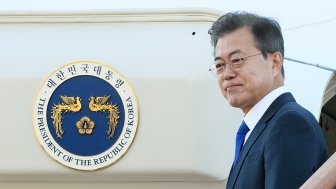
- Blog post
- Nuclear Weapons
Is There a Pot of Gold at the End of the Rainbow?
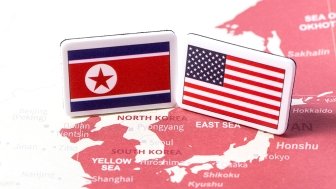
- Blog post
- Nuclear Weapons
'A Stab in the Back' or 'A Pat on the Back?'
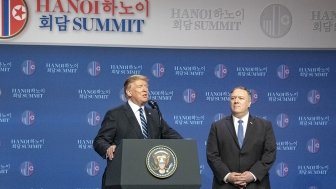
- Article
- Nuclear Proliferation/Non-proliferation
Wilson Center Experts React to Breakdown of Trump-Kim Summit
